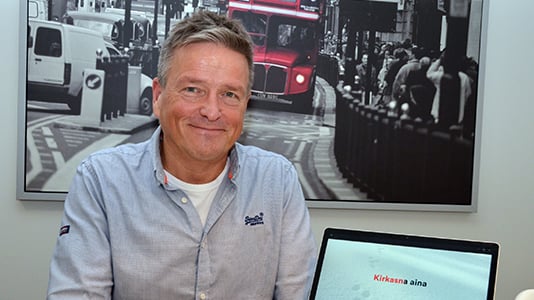A story worth telling
%20(1)%20(1)%20(1).webp?width=800&height=800&name=Kalervo_Trio_Saksofoni%20(2)%20(1)%20(1)%20(1).webp)
Basis to entrepreneurship
It all starts in 1975 from a small outlying village of Pello: Orajärvi. At the time 13 year old Kalervo, with his friends, decided to start their own band, a dance orchestra called Sailons. The youngsters, barely knowing how to play, divided the roles and before you know it, they were on their way to Kemi to pick up equipment.
After long and agonizing (for the parents) training, the band was ready for its first public performance. Dreams of becoming a musician started to materialize after a gig was planned and organized to a hotel in Kittilä. The hotel owner didn't know at the time, that the boys are only 13-15 year olds, therefore having no business entering a bar. They probably wouldn't know how to play anyways.
It was agreed that the boys can play a few songs before doors open for the night, for the owner to determine whether the boys are allowed to play that night, and if they are, the designated driver has to keep them in his sight at all times. The gig was held, and the next one got scheduled for next month.
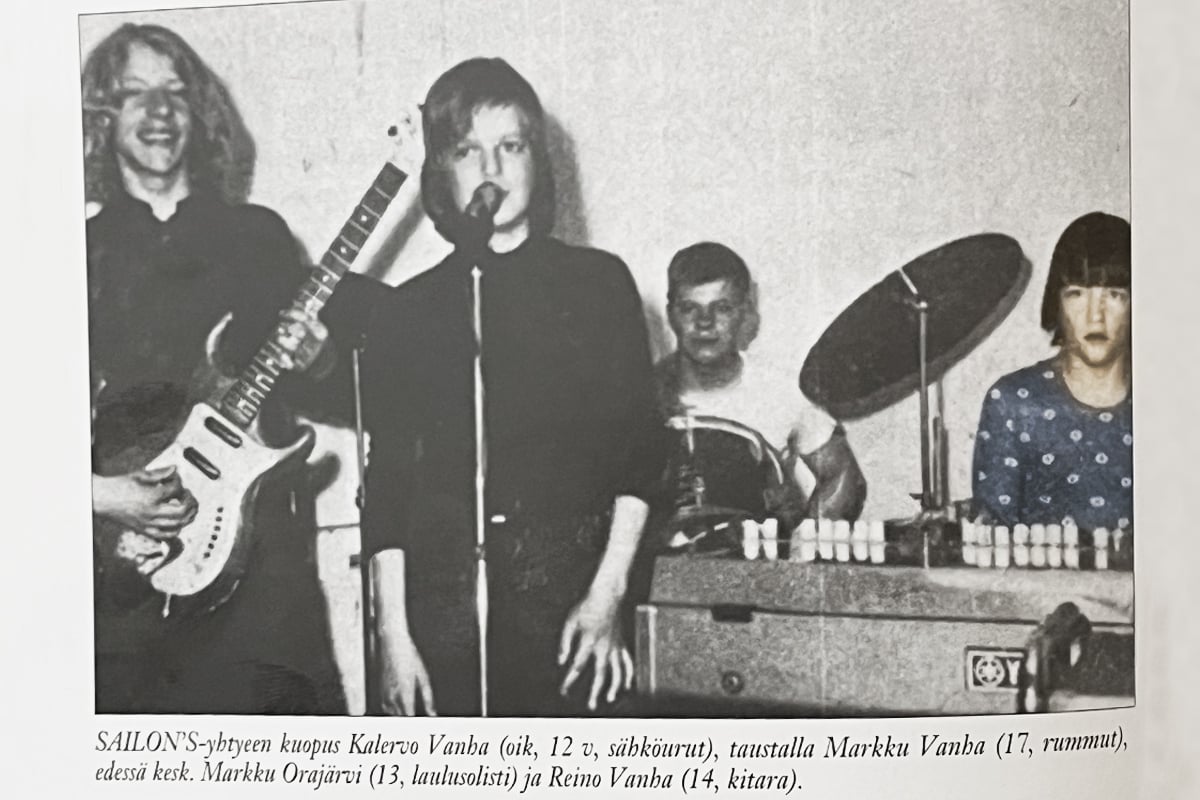
Founding the company.
After turning 16 years old, Kalervo's well begun musician career continued in military service, where Hammonds switched to wind instruments. Weeks flew by as a military musician and as a saxophonist during the weekends in Tarja Ylitalo's & Intro's band, until playing the saxophone became a full time job. Living life on the road while performing as many as 200 gigs a year took its toll, and that lifestyle no longer seemed like a viable option in the long run.
We are in 1984, when the decision to start a company is made together with Trio's drummer Eero. After long talks choosing a name for the company, they land on the name Viihdeväylä Ky. Viihde (entertainment) was easy, but what came after that was the challenge, until Eero looked out the window and saw a "Väylä" (=the Tornio river).
The fresh entrepreneurs rented out a few dance houses and the idea was to book big names to perform there during the weekends.
However, revenue generated from ticket sales ended up mostly in the minus, and after a year of entrepreneurship, all that was left was a handful of debt and good stories. They had to come up with something else.
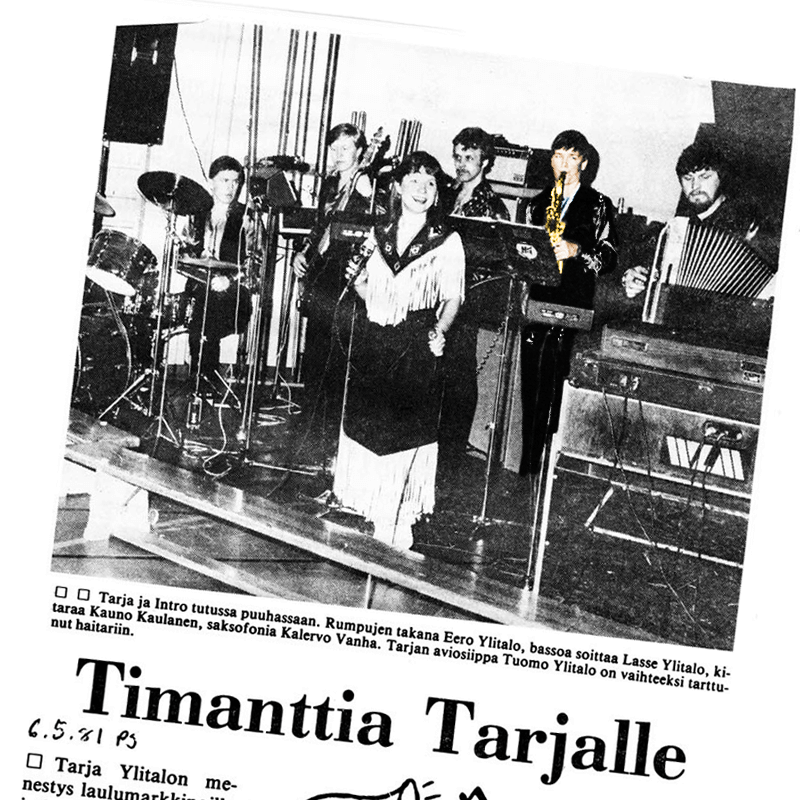
Entertainment to restaurants across Lapland.
Tourism in Lapland was booming and demand for the growing business of live music was answered by transforming into an event agency. After a few years booking orchestras for businesses, a question arose: What will play while musicians are on their breaks? Answer was found in the revolutionary technology called a CD-disc. Players with a six disc changer were rented out to a restaurants and the discs were changed once a month.
90s arrived, and so did recession. Money had to be scraped together by any means, and days got longer. Fortunately, people have always turned to restaurant services, whether for joy or sorrow, which is why there has always been a demand for entertainment. Coin-operated jukeboxes, pool tables, and dartboards came into the picture. (Yes, dartboards have been rented out too).
The turn of the millennium brought along information technology, which unlocked a whole new world. With the introduction of the first self-developed Vivaldi background music software, the prospects turned towards the possibilities brought by digitalization. However, Vivaldi's lifecycle was cut short when it was replaced by the first-generation Maestro, which included not only background music, but also karaoke and advertising displays.
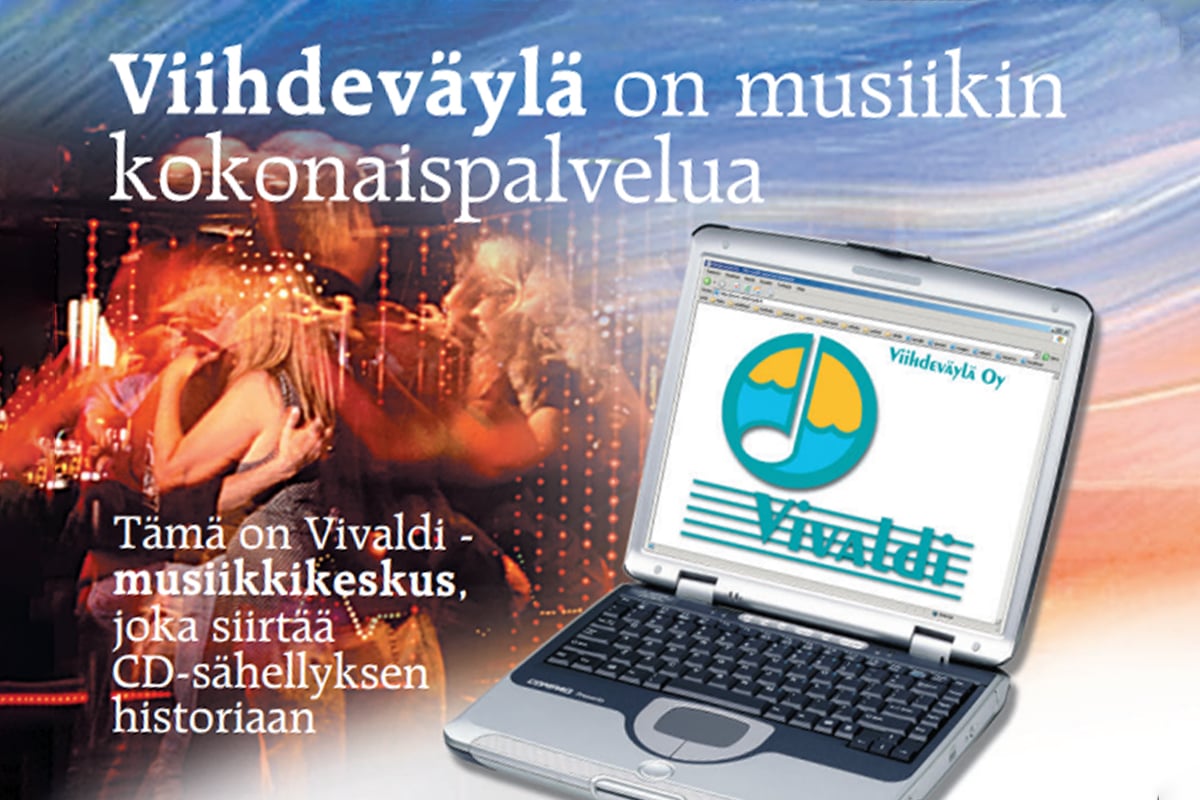
Spotify of restaurants.
Music industry underwent a massive transformation when streaming services brought all music to users' mobile phones. Tablet computers began gaining popularity, and as a result, the development of the second-generation Maestro started from scratch, with the idea of creating a Spotify for restaurants. Music library expanded from tens of thousands of songs to tens of millions, hundreds of pre-made playlists were available at a press of a button and computers were replaced with compact tablets.
Demand was surprising, and finally, Southern-Finland opened its doors for the cheerful people from Lapland. In 2015, an office was opened in Helsinki, and within a year the amount of customers had already doubled. The lifecycle of the Windows 8 operating system met its end prematurely, prompting coders to roll up their sleeves again, and the development of the third-generation Maestro Pro began.
_600x400.png?width=600&height=400&name=Music%20Android-tabletti%202%20(On%20the%20Rocks)_600x400.png)
First digital sport service intended for businesses
"Why are sports channels still shown in such an old-fashioned way?" was going through Kalervo's mind, as he saw a stack of set-top-boxes in a closet during a visit to a customer. After a quick Google search, it became clear that no one has developed a more sensible way for restaurants to display sports channels. The only methods still in use are satellite dishes, TV cards, and set-top-boxes.
Kalervo contacted Nelonen Media about distribution rights, and not long after, you could get Liiga matches on your screens with just a press of a button. Today, a customer can get all the sports channels and packages they need with just one phone call.
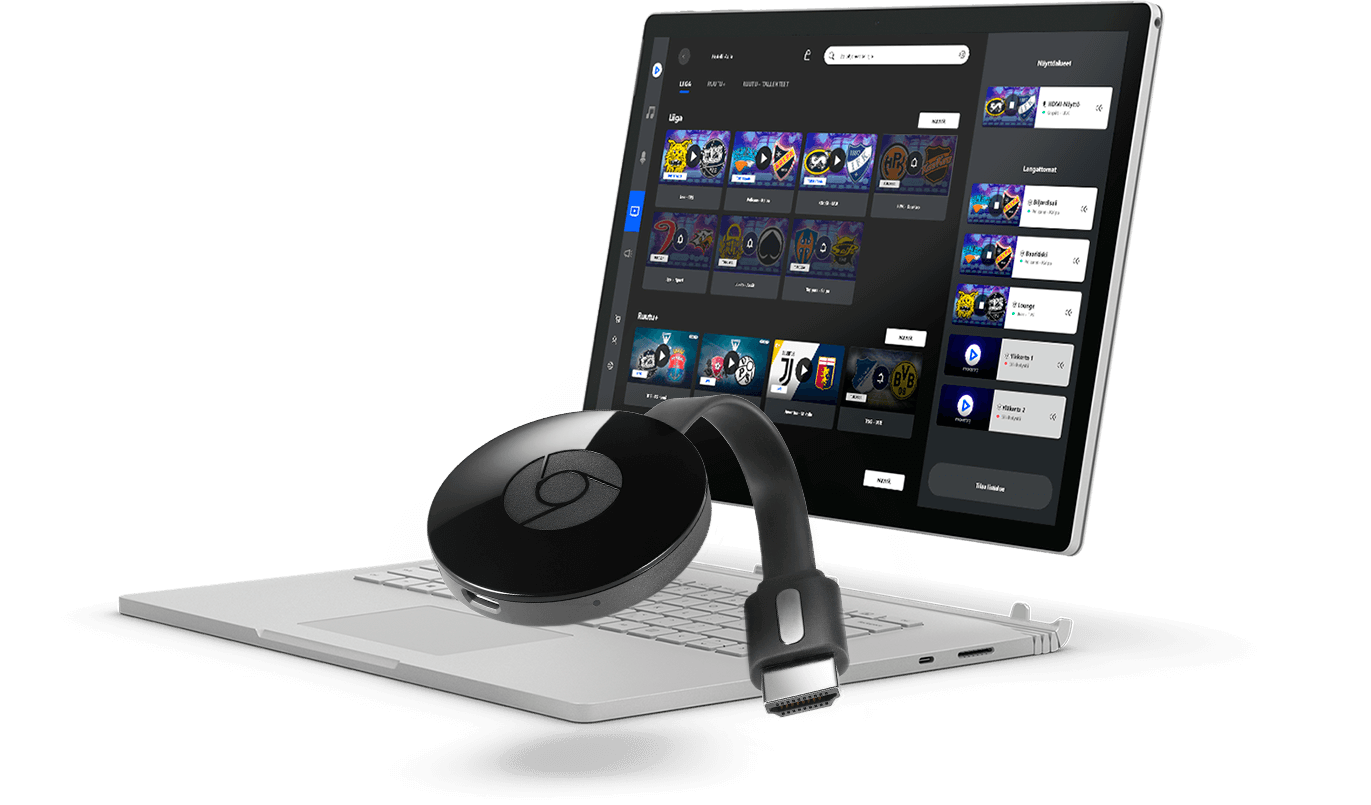
Not just a businessman, but a partner
Today, Maestro Pro is known as Feelment®, and is the most widely used restaurant entertainment service in the market, covering background music, karaoke, and sports channels. Compared to competitors, Feelment® is the only All-In-One restaurant entertainment solution. Whatever you need, you get it from one partner. It makes entrepreneurship much easier when you only have one phone number, one bill, and one device to manage—giving you more time to focus on what matters.
Where we are today has been reached only through open, fair, and close collaboration with our customers. Most solutions have originated from the problems our customers have shared with us. Restaurant owners are entrepreneurs, just like us, and without restaurants, there is no Feelment.
